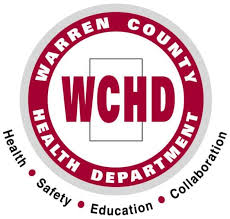When the calendar flips to summer, parents start making back to school plans.
Children entering certain grades or playing sports are required to have a physical exam performed by a health care provider.
But Luis Garcia, MD, an OSF HealthCare pediatrician, says it’s smart to schedule the check-up yearly.
He says regardless of grade level, children need to be physically and mentally healthy to thrive in the classroom. A physical can also identify conditions that must be monitored while kids are at school, like asthma, diabetes or an allergy.
“If that’s the case, there are forms that we give parents to bring to school,” Dr. Garcia says. “It’s an advanced directive on what to do if there are concerns.”
Who to see, what to expect
A good first step is to call your child’s pediatrician early in the summer because sometimes there is a wait for an appointment. With a deadline of late August, Dr. Garcia says any qualified provider with experience in child development can perform a physical. So don’t wait.
If your child needs a sports physical, the provider should have experience with musculoskeletal conditions in children. A simple phone call to your provider’s office should answer this question. But Dr. Garcia reminds you that a physical for sports requirements and one for classroom requirements can be done at once.
“A sports physical looks more into the physical health status,” as opposed to mental health, Dr. Garcia explains. “The heart, the lungs, a history of concussions. Things that might put the kid at risk when playing.
“Sports physicals are also important to determine if there might be a risk for a problem even if the kid doesn’t have any specific condition.”
Parents should come to their child’s physical with major points of their child’s health history written down, especially if you are going to a health care provider for the first time. These include vaccinations and major injuries, surgeries or other health issues. Write down any questions you have, too.
“The more information, the merrier,” Dr. Garcia says.
The exam itself will cover just about everything:
- Blood pressure
- Heart rate
- Exam of the eyes, ears, nose, throat, neck, spine, abdomen and legs
- A check of the lungs with a stethoscope for possible breathing issues
- A query into the child’s eating, sleeping and exercise habits
Dr. Garcia says a provider will also check the child’s private area and, for young women, ask about their menstrual cycle. He says irregularities may signal a problem in the endocrine system or other issues like a hernia.
Parents can help their child prepare for this by explaining that the provider is a trusted, non-judgmental adult.
“It starts with trying to establish a good rapport with our patients. Explain to them that this is part of a regular physical,” Dr. Garcia says.
The appointment should generate the forms needed to satisfy school requirements. The provider will also talk about follow-up appointments, whether regular or with a specialist, and what the family can do at home to help their child remain healthy.
***Courtesy of OSF HealthCare***













